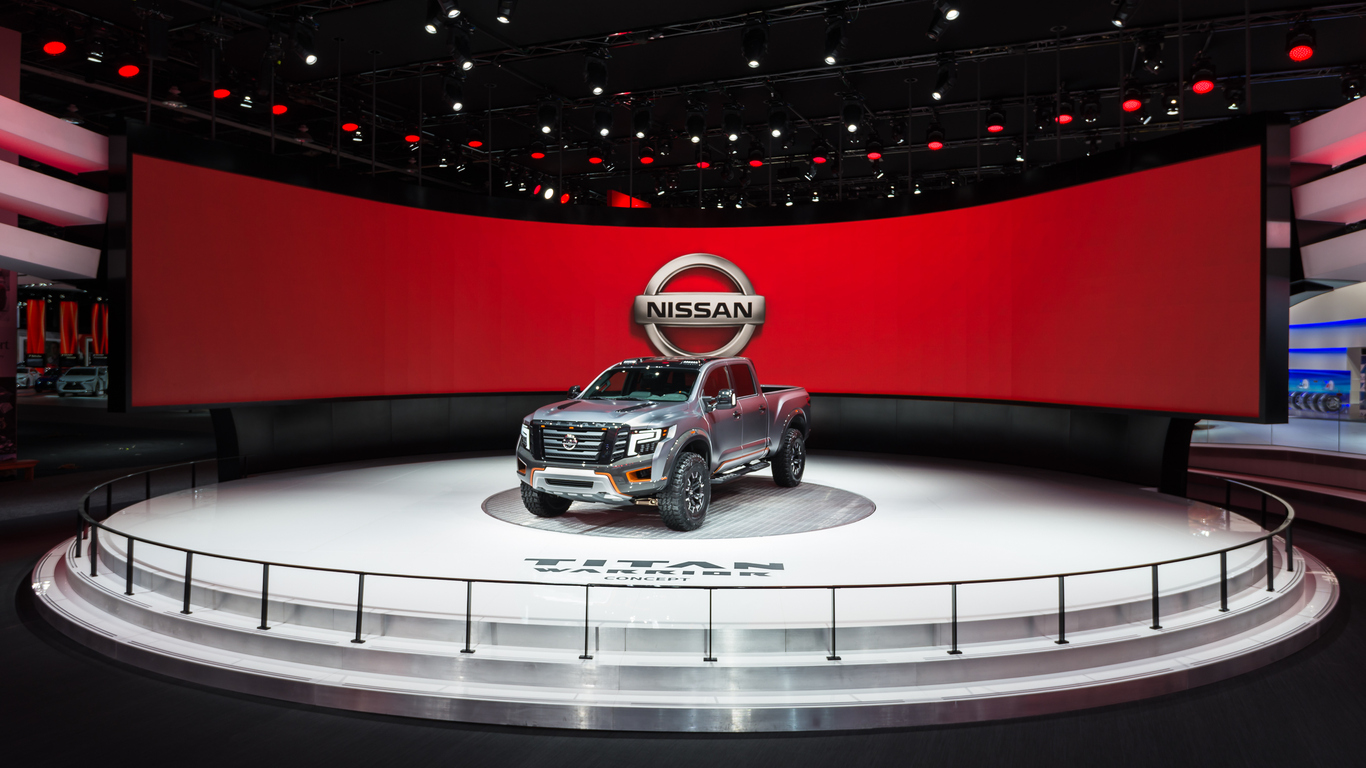Nissan’s Stock Faces Sharp Decline Amid Honda Merger Concerns
After weeks of optimism surrounding a potential merger with Honda, Nissan Motor Co.’s stock experienced a dramatic fall on Friday, marking its largest decline since August 2023. Shares of the Japanese automaker plummeted by as much as 15% during the trading session before closing down 7.8%. The downturn has raised significant concerns among investors about the terms of the merger and its potential impact on Nissan’s future.
This setback comes on the heels of a December surge in Nissan's stock, which had jumped 20% following reports that Nissan, Honda Motor Co., and Mitsubishi Motors were in talks to establish a joint holding company. The alliance, if finalized, could reshape the global automotive landscape by creating the third-largest car manufacturer in the world, trailing only Toyota Motor Corp. and Volkswagen AG.
Why the Merger Matters
The proposed merger aims to address several pressing challenges faced by Japanese automakers. Chief among these is the growing dominance of Chinese manufacturers in the global automotive market. With their aggressive pricing strategies and a strong foothold in the electric vehicle (EV) segment, Chinese brands have disrupted markets traditionally dominated by Japanese and Western automakers.
Additionally, the merger is viewed as a strategic response to declining global sales, rising competition, and the urgent need to transition from fossil-fuel-powered vehicles to electric models. While Toyota has established itself as a leader in hybrid and EV technology, Nissan and Honda have struggled to secure the necessary capital and resources to keep pace in the rapidly evolving market.
The Friday Stock Decline: What Went Wrong?
Investor confidence in the merger was shaken on Friday due to concerns about the rumored share transfer ratio between Nissan and Honda. Reports suggest that the ratio could be set at 5:1 in favor of Honda, reflecting the disparity in market valuations between the two companies. Honda’s market capitalization is approximately four times that of Nissan, leading many investors to believe that the terms may disproportionately favor Honda.
“The share transfer ratio underscores the gap in financial and operational strength between the two companies,” said Kentaro Hayashi, a senior strategist at Daiwa Securities. “While the merger has potential benefits, Nissan’s shareholders are understandably cautious about the terms and their long-term implications.”
The decline in Nissan’s stock price contrasts sharply with broader gains in Japan’s Nikkei 225 Index, which closed 1.8% higher on Friday. The disparity highlights the uncertainty surrounding Nissan’s strategic position and the perceived risks associated with the merger.
Honda’s Resilience in the Market
While Nissan’s stock suffered, Honda’s shares rose by 2% on Friday, continuing a steady upward trend. Since news of the merger talks first broke, Honda’s stock has climbed nearly 20%, reflecting investor confidence in its stronger financial position and operational stability. Analysts attribute Honda’s resilience to its relatively robust performance in the EV market and its ability to adapt to changing consumer demands.
In contrast, Nissan has faced mounting challenges in recent years, including declining profits, leadership upheavals, and difficulties in executing its EV strategy. Although the Nissan Leaf was one of the first mass-market electric vehicles, the company has struggled to build on its early success, losing ground to competitors like Tesla and BYD.
The Role of Mitsubishi in the Alliance
Mitsubishi, the third potential partner in the alliance, has yet to confirm its participation. The company is expected to make a decision by the end of January 2024. If Mitsubishi joins the merger, the combined entity would significantly enhance its global footprint, particularly in Southeast Asia, where Mitsubishi has a strong presence. This could provide a competitive edge in emerging markets, which are poised to become key battlegrounds for automakers in the coming years.
However, integrating three distinct corporate cultures and operational strategies is no small feat. Industry experts caution that historical mergers and alliances in the automotive sector have often encountered challenges, from misaligned goals to internal resistance.
Nissan’s Recent Struggles
Nissan’s struggles extend beyond the challenges of the merger. The company has faced significant financial and reputational damage since the arrest of its former CEO, Carlos Ghosn, in 2018. The leadership turmoil that followed has left the company grappling with declining sales and profits.
In the face of these challenges, the merger represents a potential lifeline for Nissan. By partnering with Honda and potentially Mitsubishi, Nissan could gain access to shared resources, technology, and capital, allowing it to accelerate its EV development and compete more effectively in the global market.
Broader Implications for the Auto Industry
The proposed merger underscores the shifting dynamics of the automotive industry. As the transition to EVs gathers momentum, traditional automakers face increasing pressure to innovate and adapt. For Japanese automakers, which have historically relied on internal combustion engines, this transition represents both a challenge and an opportunity.
The alliance between Nissan, Honda, and Mitsubishi could serve as a blueprint for other automakers seeking to navigate the complexities of the EV revolution. By pooling resources and leveraging each other’s strengths, the companies aim to create a more competitive and sustainable business model.
Related: Honda and Nissan Explore Merger to Rival Global Giants
What’s Next for Investors?
For investors, the road ahead is fraught with uncertainty. While the potential benefits of the merger are significant, much depends on the ability of the three companies to align their strategies and execute the integration effectively.
Nissan’s shareholders, in particular, will be closely watching the negotiations, especially regarding the share transfer ratio and the company’s role in the combined entity. Any perceived inequities in the terms of the merger could lead to further volatility in Nissan’s stock price.
Meanwhile, Honda’s investors remain optimistic, as the company’s stronger market position and financial stability provide a solid foundation for growth.
A Turning Point for Japanese Automakers
As the automotive industry undergoes a profound transformation, the proposed merger between Nissan, Honda, and Mitsubishi represents a pivotal moment for Japanese automakers. While challenges remain, the alliance has the potential to reshape the industry and position the companies for long-term success in a competitive and rapidly evolving market.
For now, the markets—and the world—await further developments as the three automakers navigate the complexities of this high-stakes merger.














